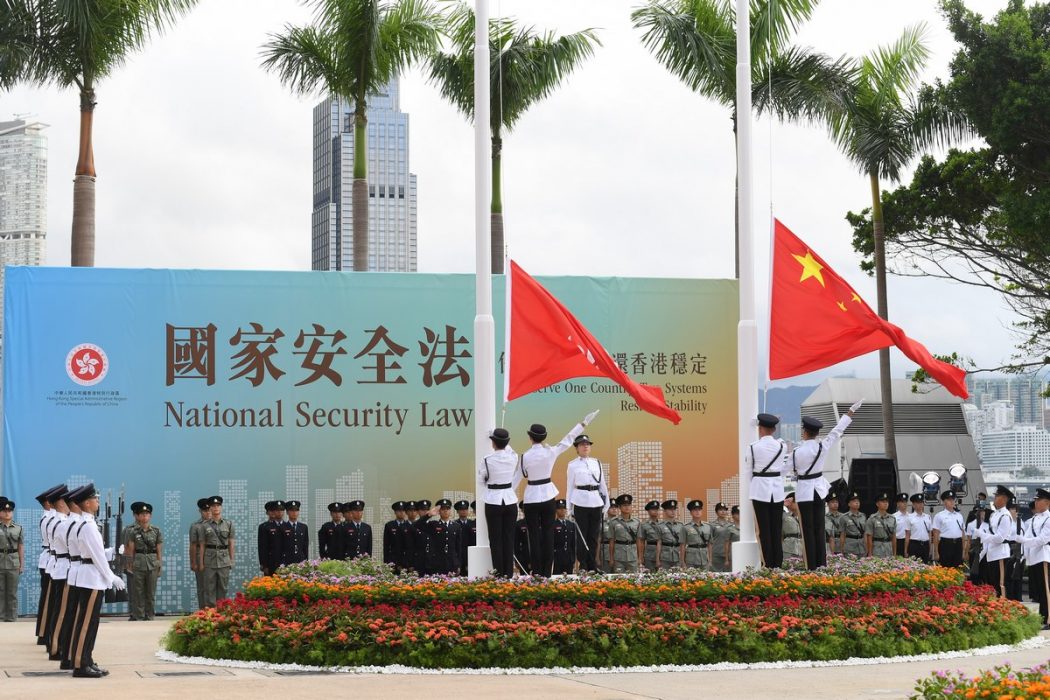Pro-democracy activist Sunny Cheung has said that he fled Hong Kong in August owing to security concerns.
The 24-year-old activist confirmed the news on Facebook after he failed to appear in court on Tuesday. “When the situation between the US and China was heating up, a pattern of hostage diplomacy was emerging. I was being followed more frequently, my partner and family were incessantly harassed. I felt it was escalating and [so] – as many had advised – I left Hong Kong unwillingly in August due to security concerns,” the post read.

In the Facebook post, Cheung confirmed that he was currently out of town but could not disclose his whereabouts owing to security and strategic concerns: “The yearning for home is the most repressed suffering. Leaving my family and partner has caused inarticulable regrets. I feel guilty about leaving my counterparts and not being able to stand with them. Leaving Hong Kong has drawn a geographical boundary and it is tortuous that I cannot feel rooted with Hongkongers,” he wrote.
Cheung was due in court on Tuesday for allegedly taking part in an unauthorised assembly together with 25 democrats after attending the Tiananmen Massacre vigil on June 4 in Victoria Park.
The prosecution counsel cited the Immigration Department in saying that Cheung and pro-democracy activist Nathan Law had left Hong Kong.
This year, Hong Kong police banned the annual vigil for the first time in 31 years, citing public health concerns arising from the Covid-19 pandemic.

In July, Cheung won 16,992 votes in the democratic primaries for the now-postponed legislative elections, and qualified to run in the Kowloon West constituency for the camp. Over 610,000 Hongkongers cast their votes in the primaries despite the authorities claiming it was an unlawful exercise. Nevertheless, 12 pro-democracy hopefuls were barred from the race and Chief Executive Carrie Lam postponed the polls for a year citing the coronavirus.
He is a former spokesperson for the Hong Kong Higher Institutions International Affairs Delegation and spoke at the US Congressional Hearing in September 2019 to lobby for the Hong Kong Human Rights and Democracy Act. He was also a spokesperson for Network DIPLO but he resigned from the post and disbanded the lobbying group ahead of the enactment of the national security law.
State-affiliated Wen Wei Po first reported that Cheung left the city in August but the news was only verified a month later.
He wrote on his personal Facebook on August 14 that he noticed being followed. HKFP reached out to Cheung in August to confirm the news but did not receive a response.

In June 2020, Beijing inserted national security legislation directly into Hong Kong’s mini-constitution – bypassing the local legislature – following a year of pro-democracy protests and unrest. It criminalised subversion, secession, collusion with foreign forces and terrorist acts, which were broadly defined to include disruption to transport and other infrastructure. The move gave police sweeping new powers, alarming democrats, civil society groups and trade partners, as such laws have been used broadly to silence and punish dissidents in China. However, the authorities say it has restored stability and peace to the city.
Support HKFP | Policies & Ethics | Error/typo? | Contact Us | Newsletter | Transparency & Annual Report | Apps
Help safeguard press freedom & keep HKFP free for all readers by supporting our team
























